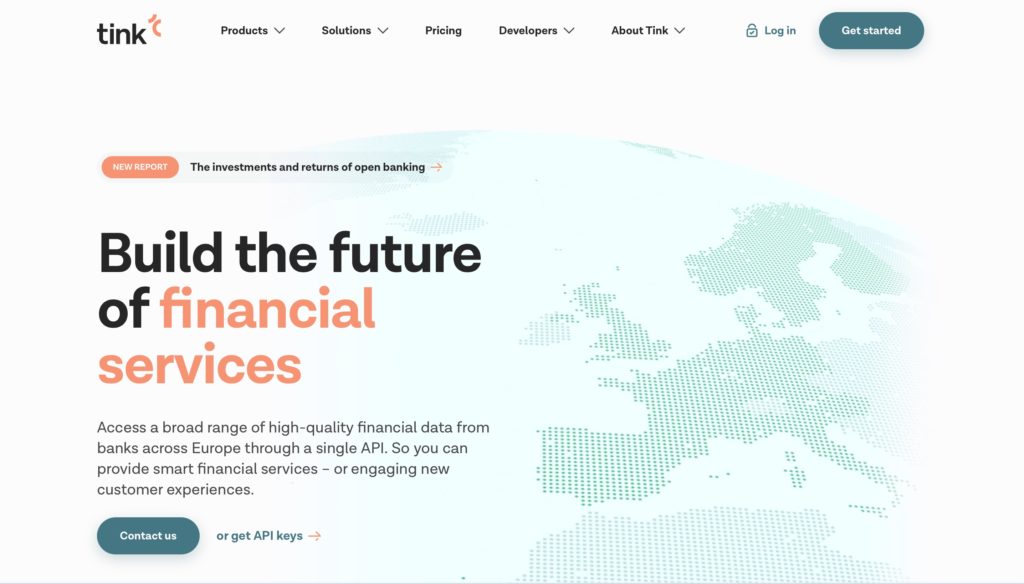
A number of Finovate alums made international fintech headlines this week. Open banking specialists were particularly active, with Canada’s Salt Edge inking partnerships with fintechs in Ireland, and Sweden’s Tink announcing an acquisition of credit decision solution provider, Instantor.
“We will be able to get a full suite of bank data for any regulated lender in this country within seconds, meaning loan applications can be assessed quicker,” Karl Deeter, founder of OnlineApplication said of the partnership with Salt Edge. “In the Irish market that’s a new proposition.”
Tink’s acquisition of Instantor is only the latest news from a company that has spent much of the year forging strategic partnerships, securing multi-million euro investments, and … acquiring companies. Before Tink’s announced purchase of the Stockholm, Sweden-based credit decisions solution provider this week, the company had pulled out the checkbook to buy fellow Finovate alum Eurobits Technologies.
With regards to its Instantor purchase, Tink sees the company helping it to offer intelligent data-services based on open banking. Instantor supports five million credit decisions a year and reported annual revenues of $4.5 million (€4 million) in 2019.
“This move will help Tink expand their product offering and is unique opportunity to continue to make significant investments in our portfolio of credit decision solutions,” Instantor CEO Simon Edström said. “Together with Tink we will create an even stronger European market leader in open banking.”
Here is our weekly look at fintech around the world.
Middle East and Northern Africa
- Is Qatar the next big fintech hub for companies looking to expand to India, Pakistan, and Bangladesh? MENA FN investigates.
- Lean, a financial API platform based in Riyadh, Saudi Arabia, raises $3.5 million in seed funding.
- UAE-based cross-border fintech marketplace Fintech Galaxy unveils its open innovation platform.
Central and Southern Asia
- Payment solutions company PayU announces partnerships with a pair of e-commerce platforms: Shiprocket Social and Quick eSelling.
- Is Qatar the next big fintech hub for companies looking to expand to India, Pakistan, and Bangladesh? MENA FN investigates.
- Pakistan Observer looks at how fintech help support innovation in the Islamic finance sector.
Latin America and the Caribbean
- JP Morgan buys stake in Brazilian digital banking fintech FitBank.
- “Loans for phones” consumer financing company Finnu raises $800,000 in pre-seed funding to help bring credit options to the underbanked of Mexico and Latin America.
- Contexto looks at the state of the challenger bank movement in Brazil.
Asia-Pacific
- PayMaya and Bonds.Ph are working together to drive financial inclusion in the retail investment market in the Philippines.
- A feature at the World Economic Forum website discusses the role of fintech in helping small businesses in Southeast Asia recover from the global pandemic.
- Vietnamese digital real estate investment platform RealStake secures seed funding from 500 Startups, as well as angel investors.
Sub-Saharan Africa
- A partnership between Crown Agents Bank and Paycode of South Africa will help promote financial inclusion in sub-Saharan Africa.
- Zazu, a fintech based in Zambia, teams up with global payments company Tutuka to launch its Mastercard-issued virtual card.
- Techpoint Africa profiles Capetown, South Africa-based remittance specialist, Mukuru.
Central and Eastern Europe
- German digital banking solution provider CoCoNet launches new business unit.
- Mastercard takes its partnership with Verestro to the next level with an announcement that the card company has become an investor in the Polish payment solutions provider.
- Wall Street Journal looks at the Wirecard warning signals missed by German regulators.



























